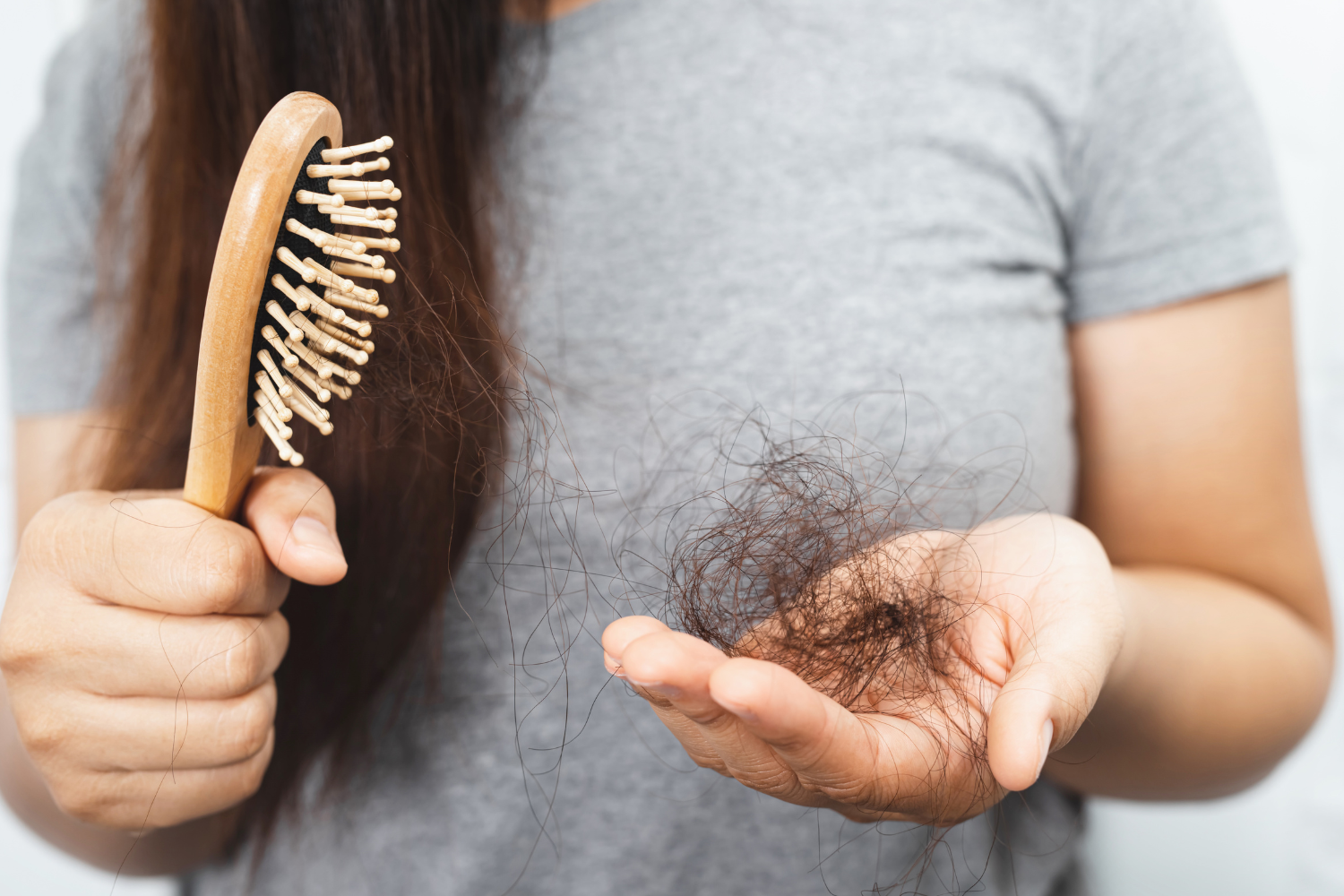This is How Magnesium Can Make Hair Loss Better
•Posted on August 31 2022

Of the many nutrients essential for human health, magnesium is one that often goes unrecognized.
Related Post: What is Magnesium Chloride - The Forgotten Mineral?
This mineral plays a crucial role in over 300 enzymatic reactions in the body, yet nearly 80% of Americans are magnesium deficient.
Magnesium deficiency manifests in various ways, one of which is hair loss.
Lucky for you, we specialize in magnesium products that help improve magnesium levels and, as a result, improve hair health.
Recommended for You:

But how exactly can our magnesium help you improve your hair loss situation? Keep reading to find out.
What is Magnesium?

Magnesium is a mineral found naturally in the earth, water, and foods such as green leafy vegetables, nuts, and seeds.
How Does Magnesium Deficiency Cause Hair Loss?

Magnesium deficiency causes hair loss in several ways:
1. You need magnesium for proper circulation, so blood flow to the scalp decreases when levels are low.
This leads to hair follicles not getting the nutrients they need, leading to weaker hair and hair loss.
2. Magnesium is also responsible for keeping the hair follicles anchored in the scalp by strengthening the keratin structures in the hair shaft.
When magnesium levels are low, the hair follicles become loose and fall out often.
3. Magnesium plays a role in hormone balance.
An imbalance of hormones such as testosterone and DHT (dihydrotestosterone) leads to hair loss.
Magnesium helps keep these hormones in check to avoid hair loss.
Related Post: How Can Magnesium Improve Your Thyroid Condition?
Magnesium deficiency causes alopecia, an autoimmune condition that causes hair loss.
Alopecia occurs when the immune system attacks the hair follicles, leading to hair loss on the scalp, face, and body.
Hair follicles are particularly vulnerable to attack when magnesium levels are low.
Magnesium supplementation helps to reduce the severity of alopecia and promotes hair growth.
Recommended for You:

What Are Symptoms of Alopecia?
Symptoms of Alopecia include:
● Patchy hair loss
● Thinning hair
● Full scalp hair loss
● Hair loss on the face and body
● Hair loss in circular or oval patches
How Does Magnesium Help With Hair Loss?

Magnesium has a direct impact on hair growth.
It regulates hair follicle production and the overall hair growth cycle, making it an essential mineral for healthy hair growth.
When magnesium levels are low, hair follicles go into a resting phase and stop producing new hair, leading to hair loss.
Here are some of the ways magnesium helps with hair loss:
1. Prevents Calcium Build-Up

Calcification of the scalp, commonly known as calcium build-up, is a significant cause of hair loss.
It happens when blood vessels beneath the scalp accumulate calcium within their walls.
These essential vessels become rigid and inflexible, preventing them from adequately supplying blood to the head.
Related Post: Can Magnesium Help Relieve Your Migraines?
Hair growth is disrupted due to decreased blood flow to the scalp, depriving your hair follicles of the necessary nutrients for healthy development.
Magnesium lowers the calcium levels on your scalp.
This improves scalp circulation, allowing your hair's nutrients to flow into the area and stimulate growth.
2. Protein Synthesis

Protein synthesis combines amino acids to create proteins needed for cell growth and repair. Hair is made up of a type of protein called keratin.
Proper synthesis of keratin and other proteins essential for hair growth requires magnesium.
When magnesium levels are low, protein synthesis is disrupted, preventing hair growth.
Related Post: How MSM Powder Improves Your Hair Health
Reduces DHT Levels
Dihydrotestosterone (DHT) is a hormone that's responsible for hair loss.
It's a by-product of testosterone that binds to the hair follicles and thins them, leading to hair loss.
Magnesium inhibits 5-alpha reductase, the enzyme responsible for converting testosterone to DHT.
This action helps to prevent hair loss and promote hair growth.
What Are Other Forms of Hair Loss?

● Androgenetic alopecia (male pattern baldness)
● Telogen effluvium (hair follicles go into a resting phase)
● Anagen effluvium (hair follicles are damaged)
● Traction alopecia (caused by tight hairstyles that pull on the hair follicles)
How to Take Magnesium to Improve Hair Loss?

The best way to take magnesium for hair loss is to choose a supplement easily absorbed by the body.
At Greenway Biotech, we offer magnesium chloride, the most bioavailable form of magnesium.
For best results, we recommend taking magnesium chloride supplements daily.
You can also apply magnesium oil topically to the scalp.
If you're experiencing hair loss, buy magnesium chloride usp and magnesium oil for the ultimate healthy hair bundle.
You can also pair these two items with our MSM Powder that is known to increase healthy hair growth, by purchasing our Health Bundle to get the most bang for your hair health buck.
Comments
2 Comments
-

Posted by Greenway Biotech | February 16, 2024
-

Posted by Nina Ross | February 16, 2024
Leave a Comment@Nina: Thank you, we’re glad you found it helpful!
Very informative post.